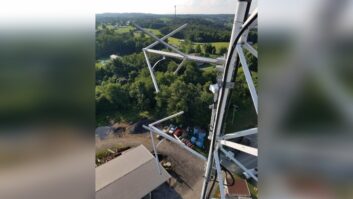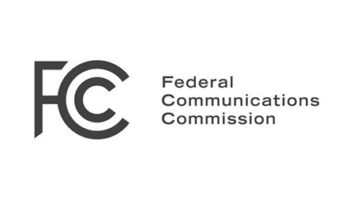The FCC’s order on AM revitalization is already having an impact on stations, consultants and engineers.
This is one in a series of Radio World interviews with industry tech and regulatory experts, commenting on the FCC’s October actions in support of AM radio stations in the United States.
Timothy Z. Sawyer is principal in the Washington, D.C.-based firm T.Z. Sawyer Technical Consultants LLC and senior consultant at Mullaney Engineering Inc.
RW: The AM order is out. Overall, what’s your reaction to it?
Sawyer: Overall I’m simply puzzled at the length of time it took to move forward with what was issued. Clearly, as has been reported, there was trouble at the top of the FCC with any type of AM-only FM translator window. In my comments in the docket I did not fully support an AM-only window, but did support a preference being assigned to AM stations in a general filing window open to all for new facilities, with a greater preference given to stations in need. Those without nighttime service.
The modification of existing facilities was not on my radar. The end result is that I believe it allows utilization of existing facilities that does not increase the overall inventory, and that’s a good thing. However, it is too early to tell the impact on reshuffling of the spectrum and its impact on those that choose to wait for the auction windows.
RW: How significantly will the multi-part translator plan change the health and balance of the AM and FM bands?
Sawyer: Over the years the major complaint that I’ve heard from my AM clients is lack of coverage/service at night from their facility. AM radio licensees, at least those that I deal with on a regular basis, are all about local services to their communities. They just want to do good for their communities, pay their bills and make a little money if at all possible. These are the fabled mom-and-pop operations that everybody talks about.
I also have a number of FM clients who are in the same classification as local operators. I spend an awful lot of time lately doing battle for my FM clients against what they see as an FM translator invasion. Given that full-service FM stations are protected from interference from secondary services beyond their FCC protected contours, I foresee a lot of work ahead to protect my FM clients from FM translators being introduced into the market by AM stations.
The AM band is an unhealthily radio environment due in large part to the increase in radiofrequency noise from unlicensed or unregulated devices. The background noise floor continues to increase. You can try to regulate a further increase in the man-made noise level, but turning back the clock — reducing levels of interference from non-broadcast sources — I don’t think that is possible. We can increase power to attempt to override the noise level, but this is very much like building a dike to hold back the flood waters. Increased power has the downside of also increasing the noise level, this time from “other” stations that have also increased power. Increasing power increases operation expenses, particular the electric bill, in an industry that teeters on the financial edge of failure or success each month. This is a “rising tide floats all ships” problem. I don’t have the answer. The opportunities for more power due to the relaxation of protection standards (AM to AM) is a short-term win; the smart way is to fix the excessive spectrum background noise level generated from man-made devices.
The FM band has its own interference issues to deal with, some as a result of the increase in secondary services to the band. Adding to the secondary service inventory in a market is troublesome to our existing facilities. I understand this, yet it is a function of what I do every day. I’m personally in favor of FM translators for fill-in use, be they associated with an AM or FM primary station. But not necessarily for use as a stand-alone service rebroadcasting a distant station. I’d very much like to see that stopped or a higher hurdle of public service justification added — one might consider the need for an non-fill-in FM translator for example when the proposed service area was underserved.
AM and FM stations are facing increased interference, be it broadcast generated, or man-made noise — we are on the edge of creating what former NAB President Edward O. Fritts in 2000 called “islands of service in a sea of interference.” I see this (islands of service) occurring with my work with television stations daily too. Spectrum noise created by new technology, it’s an issue that faces all broadcasters, AM, FM and TV.
RW: What do you think of the details of how these translator windows will all work, and how stations will apply for each part?
Sawyer: Two windows, four parts, as we all know. Those that can afford to acquire an existing translator and are eligible for the modification windows (part 1 or 2) will file as soon as they are able, day one. We are currently generating applications and pre-filling out the FCC forms. We will double-check the data and make any adjustments needed in the technical data in the days leading up to the opening of the filing periods. Those that feel they can wait until the auction windows (parts 3 or 4) may find no available spectrum in their market. It all depends on how much spectrum in the individual market might be available. Bird-in-the-hand seems the wiser way to proceed.
Let me relate a story told to me today by an AM client this morning. He had started negotiations in the last 48 hours with two different translators licensees via a broker, looking for the best price, only to be told today that the translators had been taken off the market for repricing.
RW: Aside from the translator issue, which has received most of the attention, which of the FCC’s other actions in this order do you think will have the most impact?
Sawyer: The reduction of city of license coverage standards will offer significant flexibility in relocating existing sites. However, I’m not sure why the need to require NEW facilities to meet a higher standard than existing stations is required. It’s about service to the community, it’s either there or not. I’m not a big fan of tiered levels of service.
Closer to home, this might be a win for WMAL(AM), which is facing a site relocation. I see this as helpful to some AM stations that had to file for secondary unprotected service at night because they couldn’t provide the required level of service to their city of license.
The reduction in minimum standards for radiation (RMS values) is a win for those that have to use extremely short towers, or an abbreviated antenna ground system. That will help in site selection or relocation too. I’ve had to add extra design-and-build expenses to some projects to meet the old standards in the past. I’m delighted to take advantage of some possible non-traditional radiators should they be developed.
Elimination of the AM ratchet rule for modification of existing stations is good too. I have no problems with kicking that one to the side of the road.
The further notice of proposed rulemaking will allow us to tweak some of the proposals that the FCC has teed up; I look forward to making my voice heard as we move forward. In particular I think we all, as an industry united, need to seriously weight the costs and the benefits of our existing Class A protection requirements. Roll back the RSS calculations and level to the pre-1991 levels — no brainer, bring it on. Client in the southwest currently at 70 watts at night, an immediate increase to 190 watts — doesn’t seem like a whole lot, but to him it’s the world.
There are a number of interesting proposals that need to be heard, and others that need some refinement. I look forward to it.
RW: Are there technical concerns or potholes that you see in the details of this order, things radio engineers and owners should be aware of and prepared for?
Sawyer: Not really — I don’t think that broadcasters can do the FM translator modification window or the auction windows without legal or technical help. It’s too important, one-bite-of-the-apple sort of thing. Be prepared to do it right or not at all.
RW: Is there anything the FCC didn’t do, that you wish it had done?
Sawyer: Moved/acted sooner — if this was the game show “Family Feud,” it would be the number one answer.

Related:
Rackley: AM May Never Have an Opportunity Like This Again












